Vladimir (Ze'ev) Khanin: "The current war clearly has a pronounced Jewish aspect"

The Israeli political scientist and expert on the integration of olim (Jewish immigrants) from the former Soviet Union (FSU) into Israeli society discusses the impact of the Russo-Ukrainian War on migration trends in the Jewish diasporas. Our conversation is focused on the moods among Ukrainian and Russian Jews, where they immigrate most often, and the sociodemographic profile of these immigrants. The war is also markedly affecting the transformation of the identity of Ukrainian and Russian Jews, and part of this interview centers on these identity transformations. We also discussed the role of the Russian language as the lingua franca of Jews from the FSU and the (im)possibility of changing this situation in the near future.
"Local ethnic groups, such as Ukrainian, Russian, and Belarusian Jews and others, are taking shape today"
What impact is the Russo-Ukrainian War likely to have on the future of the Jews in both countries? Please briefly outline the main trends that you are seeing.
The impact of the war that began with the Russian invasion of Ukraine in February 2022 is revealed in three main dimensions. The first is migration and demographic processes. The second involves aspects of the relationships within the transnational community of Russophone Jews. At issue here is the extent to which the war will or will not influence what we call the "transnational diaspora of post-Soviet Jews," where the Russian language was always the lingua franca.[1] We are also witnessing the formation of local ethnic groups of Ukrainian, Russian, and Belarusian Jews, and others, as well as émigré communities, like Russian-speaking Israelis and Russian-speaking Jews in the U.S., Germany, and other countries. The community of Soviet and post-Soviet Jewry, which weathered the first decade after the collapse of the USSR, has ceased to exist in its previous form. It has moved into the global space, and its center is Jerusalem, not Moscow, Berlin, New York, or Kyiv. The feeling of unity within the community is changing because the war is demanding a higher degree of loyalty on the part of Jewish communities to the countries in which they reside.
The third dimension is that which is happening with the organized Jewish movement. Before the war, we witnessed the flowering of Jewish life in the post-Soviet space, especially in the two largest communities, Russian and Ukrainian. Because of current events, the question arises whether organized Jewish life will survive in these countries and whether a full-fledged Jewish community will remain part of local civic nations. There is a risk that the situation may resemble the one we are seeing in Poland, Czechia, Austria, the Baltic countries, and Belarus, to some degree. The Jews there are present as a symbol, a "memory unit," not as a real subject of the institutional space. On the other hand, even though there are mostly no Jewish communities in these countries, there is every possible Jewish institution: museums, research centers, and synagogues, which few people actually visit. This begs the question: Will the same thing happen in Russia and especially in Ukraine after the war? These are the three main challenges the Russo-Ukrainian War has placed before us.
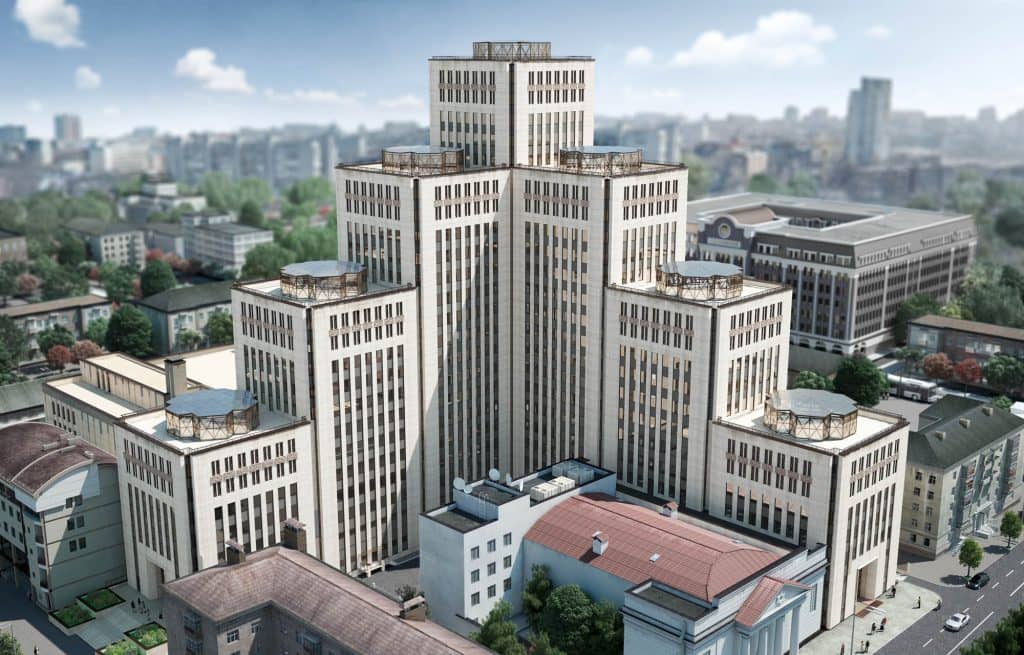
You study trends of Jewish migration from Ukraine, Belarus, Moldova, Russia, and Kazakhstan. Could you tell us more about this sociological research and its goal and tasks?
My research aimed to answer the question I put forward at the beginning of our conversation. This research was triggered by my book, published in October [2023] by De Gruyter, the first volume in the series "Post-Soviet Jewry in Transition," which is under my editorship. This book is based mainly on research we conducted in 2019 and 2020 in Russia, Ukraine, Belarus, Moldova, and Kazakhstan before the COVID-19 pandemic, when the situation seemed stable. Then, once the book was nearly ready for publication, 24 February 2022 happened. So, I had to figure out how much the collected data was relevant to the current situation. This was large-scale, detailed research featuring a huge sample, hundreds of interviews, endless statistical data, and a description of the activities of various Jewish communities. It included socio-anthropological aspects, data on family and personal space, and participation in the political process, offering an analysis of ethnic, religious, and civic identity and the role of ties to the State of Israel. In preparing this book for publication, I had to determine whether any serious changes had taken place after 24 February 2022 or whether the context, rather than the basic process, had changed. Conversely, research results could be treated exclusively as a history textbook.
So, I did everything in my power to analyze current trends. The simplest and most appropriate way was to do this with émigrés (repatriating people) from Ukraine, Russia, and Belarus in Israel because we know their exact number and location. We managed to interview them twice and produce a representative sample. We understand to a lesser degree what is going on with émigrés from Ukraine, Russia, and other countries of the FSU who are in Europe right now. Still, we were able to obtain some statistics and observations from our German colleagues. And we contributed to this research by being in that region. In the sociological sense, we understand least of all what is happening in Ukraine and Russia because war is not the right time for conducting research. Even though the Rating sociological group and the Kyiv International Institute of Sociology in Ukraine, as well as the Levada Center in Russia, are conducting surveys, the Jewish sample in these studies is very small — much smaller than the statistical minimum for any far-reaching conclusions. So, we can only conduct interviews, make observations and assessments, and compare them to identify existing trends.
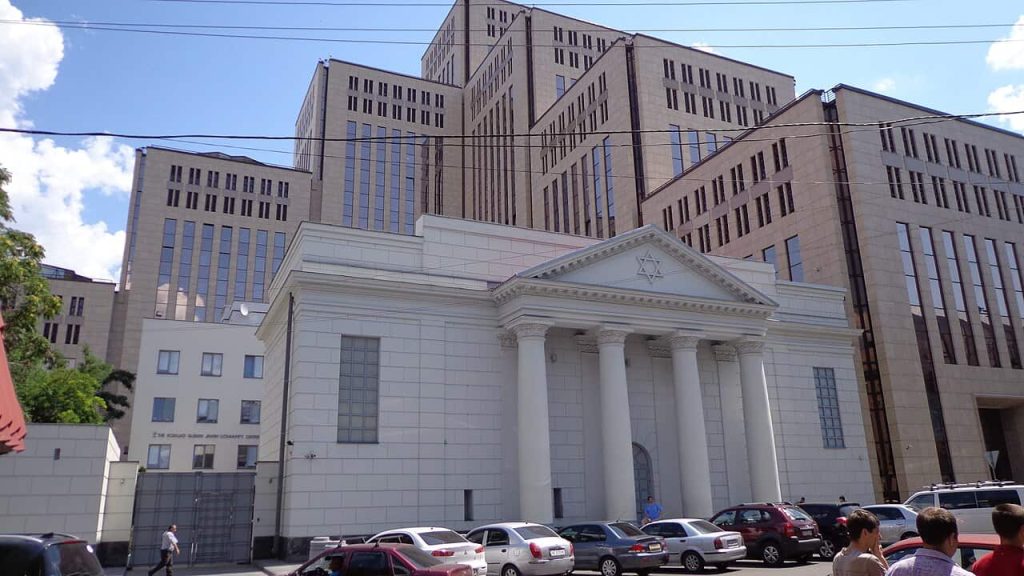
I began this research when I was the chief specialist at the Ministry of Aliyah and Integration, a government department dealing with migration, repatriation to Israel, and the integration of Jews into Israeli society. I am continuing to work on this research now that I have returned to teaching at Bar-Ilan University and to the Institute for Euro-Asian Jewish Studies in Herzliya, where I am the Academic Chairperson. In fact, we face two important tasks concerning the academic and practical dimensions of research. The first resides in the scholarly analysis of processes. However, it is difficult to distance yourself from practice when we talk about recent processes. And so, I hope that our research will have a practical meaning for Jewish communities and leaders and the civil societies of the countries where Jews live.
This pertains to Ukraine, above all, because after the war and, we very much hope, victory in this war, Ukraine will have to reexamine its relations with Europe, the world, Russia, Israel, its partners, NATO, and the guarantors of Ukrainian independence and security, who have revealed themselves in various ways. It will need to understand what Ukrainian civic society and civic nation are and what place non-dominant ethnic and religious groups will occupy. We very much hope that our colleagues in and outside the academia will give serious thought to the precise numbers, facts, findings and recommendations of our research.
"As of today, the Jewish community of Ukraine has experienced the biggest demographic losses"
What impact has the Russo-Ukrainian War had on Jewish migration trends?
To date, it is the Jewish community of Ukraine that has experienced the greatest demographic losses. Before the war, 40,000 to 45,000 members of the core Jewish population lived in Ukraine. By the word "core," we mean people who identified themselves as Jews in post-Soviet censuses and those who called themselves whatever they liked but had a stable Jewish identity all the same. Most often, these are people of homogeneous Jewish backgrounds; in other words, both parents are Jews. However, they can also include those with only one Jewish parent. We are not always talking about the mother, along the line of whose pedigree, according to Jewish religious tradition, the Jewish affiliation of descendants is determined. From the standpoint of Halakhah, Jewish religious law, a Jew is a person born of a Jewish mother or one who adopted giyur, i.e., converted to Judaism in keeping with the procedure accepted in Orthodox Jewish communities and, occasionally, Reformist ones. According to Jewish tradition, this signifies not just a change of religion but also bonding with the Jewish people in the ethnic, national sense. It is impossible to be a non-Jewish Jew. You can be any type of Christian — an American, a French person, a Ukrainian, an African, but this does not happen in the Jewish case, just like it is impossible to be a Shinto believer without being Japanese. However, you cannot become Japanese if you have not been born there, which is not the case with becoming a Jew. For this, one has to go through the giyur procedure, i.e., convert to Judaism. This approach is still weak in the post-Soviet space, so we primarily talk about ethnic origins.
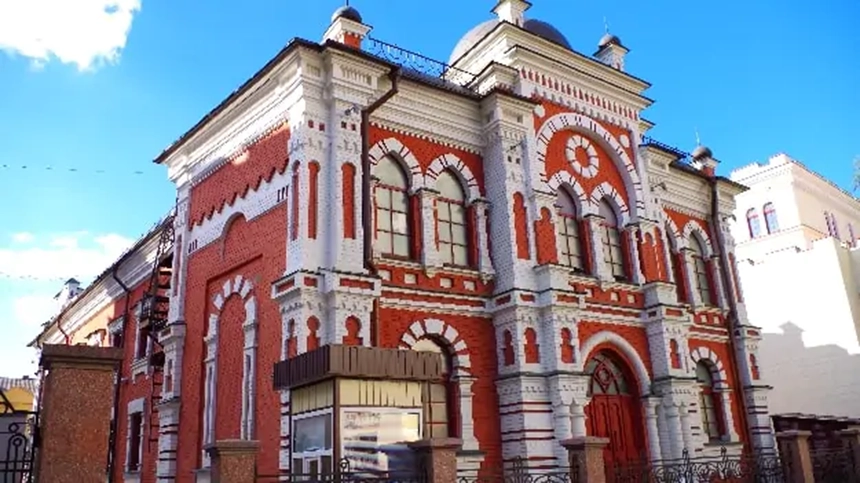
There is one more parameter: meeting the criteria of the Law of Return, according to which a Jew (in the broad sense of this word) is someone who has the right to become an Israeli citizen. Before the war, there were approximately 200,000 people like this in Ukraine. Furthermore, the Law of Return defines not only the criteria for the right to repatriation but also draws the boundaries of the Jewish collective in the diaspora. In other words, Jewish communities in the diaspora work with everyone who has the right to acquire Israeli citizenship. Some of these people have Jewish identification, while others do not. But one way or another, if the Jewish community sees a person who has the right to acquire Jewish citizenship, such a person is perceived as a Jew in this or that sense. As of today, our estimates indicate that the ethnic core has shrunk roughly by half. At the same time, the expanded Jewish population, i.e., people who meet the criteria of the Law of Return, has decreased by approximately one-quarter. Simply put, between 20,000 and 25,000 Jews who belong to the ethnic core and between 120,000 and 150,000 people who are eligible to return to Israel have remained in Ukraine.
Before the war, Russia was home to approximately 175,000 members of the core Jewish collective and 600,000 people eligible to return to Israel. After the war began, the expanded Jewish ethnic group shrank approximately by 100,000. Where did those people go? Russians went mostly to Israel. Since Russia has become toxic, Russian Jews, like Russians in general, are of no interest to anyone anywhere. And this does not depend on what they support — whether they are "for" or "against" the war, in favor of Vladimir Putin or against him, whether they attend antiwar demonstrations or, on the contrary, support the invasion. A country like Israel accepts everyone by and large; that is why it is the destination of migration from Russia. To date, approximately 65,000 people from Russia have been repatriated to Israel since the beginning of the war.
The entire world is open to Ukrainians, including Jews. That is why, during the aliyah boom of February–March 2022, Ukrainian Jews and their family members headed mainly to Israel. Later, repatriation from Ukraine to Israel dropped sharply, and Ukrainian Jews are resettling mainly in EU countries. In fact, aliyah from Ukraine ended sometime in May of last (2022) year. To summarize, the Ukrainian Jewish community is currently divided among three main centers: Ukraine, Israel, and Germany and Central Europe. Today, there are approximately 16,000 Ukrainian Jews in Israel and 18,000 Ukrainians of various ethnic backgrounds who are not eligible for the right to settle in Israel but who went there because they have some connection with the country (relatives, friends, etc.). In the broader sense, this group can also be included in the category of "candidates for the Jewish community."
By early 2023, Germany has accepted around 12,000 Ukrainian Jews (according to the criteria of Israel's Law of Return). Twenty thousand more migrants who have come to Germany had connections, in one way or another, to Jewish communities. They believe they have some kind of deeper Jewish roots or received assistance from Jewish communities in Ukraine during the war. The latter have helped everyone they could without inquiring as to their origins. Thus, once they ended up in Europe — Germany, Austria, Romania — a certain proportion of these people continued, because of inertia, to turn to local Jewish communities, often receiving assistance, consultations, etc.
The Russian Jewish community did not experience such difficult demographic losses, although inflation of the ethnic core also takes place there. Those leaving are primarily residents of large cities, where the bulk of the Russian Jewish community is concentrated. Half of all Russian Jews live in Moscow and St. Petersburg, and the mass departure began from these very cities. Moreover, a significant proportion of these people understood perfectly well what was happening, and they did not want to have anything to do with the Russian government and its policies. In general, it can be said that Jewish émigrés from Ukraine are refugees in the fullest sense of the word, while migrants and their families from Russia are people who, for the most part, are fleeing uncertain economic prospects and are not willing to accept the policies of the Russian leadership.
An important question is whether these people will return when and if the war ends. The war will not end soon. Our Israeli experience has shown that the Arab-Israeli conflict has lasted for nearly a hundred years, and now we are seeing the latest phase of its exacerbation. I would very much like to be wrong, but I have a strong feeling that this conflict is a serious and lasting one. Practice shows that, regardless of how long a person plans to stay abroad (a few weeks, months, a year, or several years), the two-year period is critical. If a person spends two years abroad, the chance of returning shrinks by 50 percent. After five years, the possibility of returning is 20 percent, according to the data we have on émigrés from Israel. In other words, in eight out of ten cases, émigrés do not return. That is why I believe that the estimates of Ukrainian demographers, who say that there will be approximately 30 million people in Ukraine by 2025, are also applicable to Jews.
"The three key countries where 90 percent of post-Soviet Jews live are Russia, Ukraine, and Belarus"
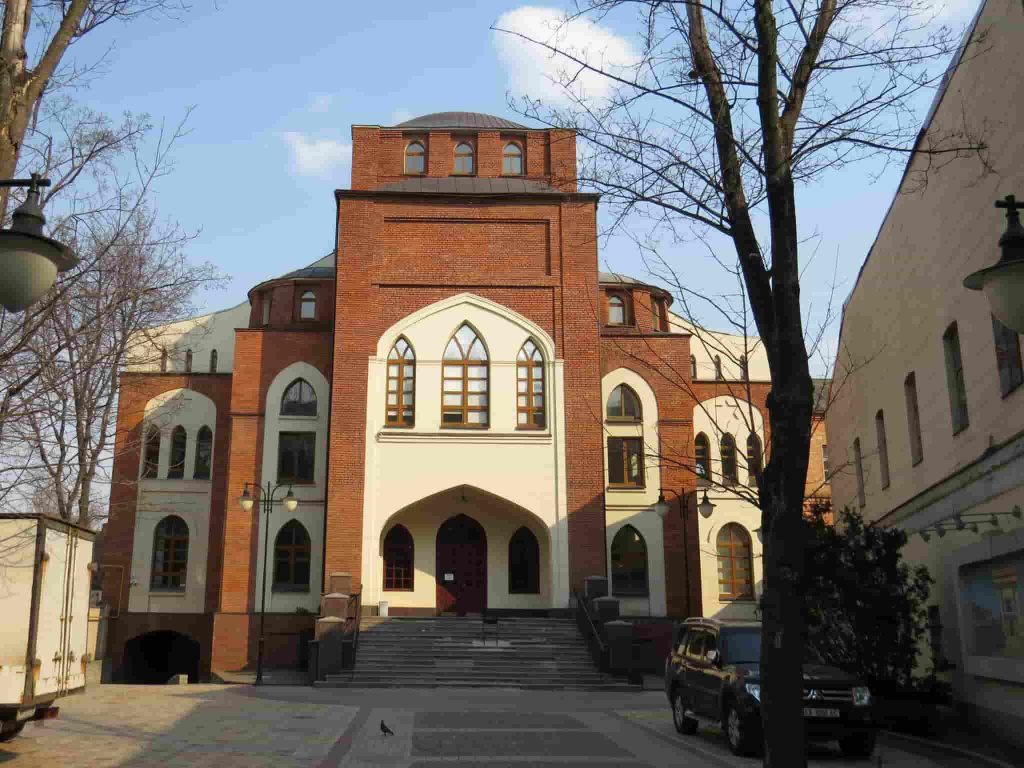
What is the sociodemographic profile of the people who wish to leave?
The sociodemographic profile is a representative cross-section of the Jewish population of every country. The emigrants were primarily large-city dwellers in the early 1990s and residents from the periphery in the early 2000s. There are three phases of the Putin aliyah: the Crimean period after the war began in 2014 when Russia was officially "not fighting," then the COVID period; and now the military aliyah. The last wave graphically represents the entire Jewish population of Ukraine, Russia, and Belarus. In the rest of the ex-Soviet republics, Jewish communities are too small for us to make any significant generalizations — except Azerbaijan, where the number of Jews has increased due to emigration from Russia. An insignificant number of Jewish immigrants have settled in Georgia, Armenia, and Moldova.
The three key countries where 90 percent of post-Soviet Jews live are Russia, Ukraine, and Belarus. Emigration from Belarus to Israel has also reached serious levels, with 2,000 people (roughly a third of Belarusian Jews who have the right to settle in Israel) leaving in the space of 15 months since the start of the war. As far as Russian and Ukrainian Jews are concerned, these are primarily educated, urban people (two-thirds with higher education) who typically decided 10–15 years ago they would not go anywhere unless something extraordinary happened. They adapted to their country of residence and linked their fate to it. But the extraordinary did happen. From a psychological standpoint, these people are often unprepared for a radical change in their lives. Bewildered and disenchanted, they are unable to define their future and what they should do next.
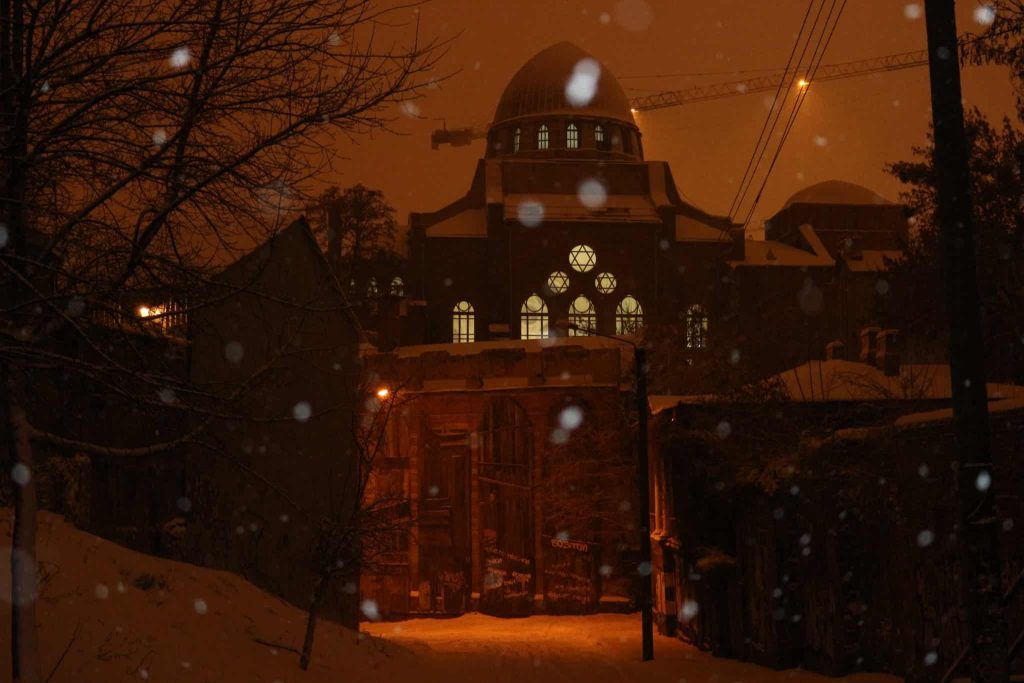
If we are talking about gender in terms of "more" or "less," we see that mostly women and young people make aliyah from Ukraine to Israel and immigrate to Europe. This is happening for understandable reasons: The husband is fighting — or should be fighting — because able-bodied men up to the age of sixty are subject to conscription and must remain in Ukraine. Once again, in terms of "more" or "less," it is primarily men who make aliyah and emigrate from Russia, especially since September 2022, when men began fleeing to avoid being called up, not understanding why and for what they were supposed to fight in this war. On the other hand, Ukrainians understand what they are fighting and dying for. Looking at Israel or Germany and Central Europe, the two main destinations for Jewish emigration, more men than women make aliyah from Russia. In contrast, more women than men make aliyah from Ukraine. As for other parameters, the sample is too small to allow us to draw conclusions about any significant trends.
"I think that the Ukrainian language will remain on the level of a symbol that will distinguish Ukrainian Jews from other Jews of the ex-USSR"
How can these trends of Jewish emigration from Ukraine and Russia affect the identity of the communities in the future?
It is important to understand where today's émigrés will join their families when the hot phase of the war ends. Immigrants who came to Israel but whose relatives remained abroad responded twice as rarely that they would stay permanently in Israel. In other words, if people have relatives (grandfathers, grandmothers, fathers, mothers, children, husbands, or wives) abroad, they are half as likely to remain in Israel. However, 80 percent of respondents said they would stay or were considering the possibility of staying in Israel. It is another matter if an economic boom begins in Ukraine after the war or serious economic growth in Russia. In that case, there will be reverse migration, which will most likely be substantial.
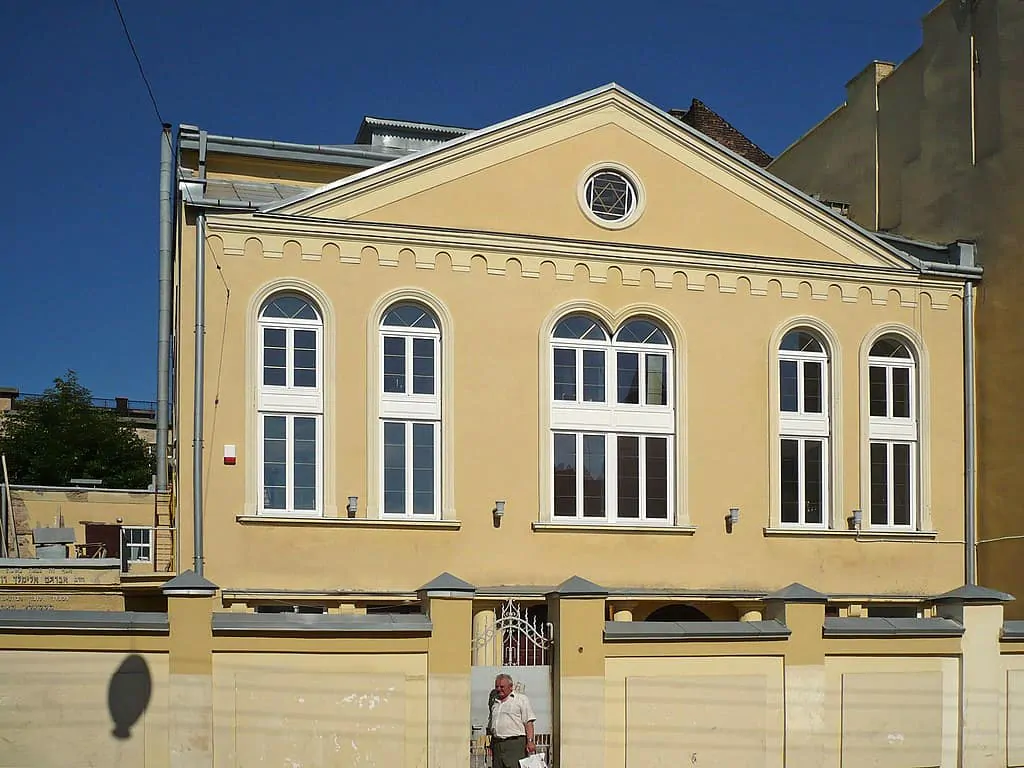
In this case, an interesting phenomenon may emerge: the strengthening of the community of expats, that is, Ukrainian, Russian, and Belarusian Jews who hold Israeli passports. Such communities exist in a number of countries around the world, such as the Jewish community in Japan, American and English Jews, and Israelis or Japanese who have gone through the giyur procedure. The Jewish community in the United Arab Emirates is also entirely comprised of expats, while the Jewish community in Singapore consists of Anglophone expats. Something similar and important may happen in Ukraine and, partly, in Russia. What will the Ukrainian government's and society's attitude to this be, and what will it be like in Russia? I think the Russian attitude will be suspicious, and the Ukrainian one will be neutral or positive. Furthermore, these will be people who will arrive with valuable contacts and ideas. Even before their emigration, many of them held respectable social positions in society. So they will be ready to contribute to the country's economic development after the war. But if this does not happen, if a "Marshall Plan" is not introduced and no intensive economic growth takes place, my first conclusion will be closer to the truth.
Nevertheless, the Jewish topic will not disappear from the Ukrainian and Russian contexts. In other words, Jews will be present in the life of society to some extent. Even if the size of the Jewish community shrinks, relatively large Jewish centers will remain in Kyiv, Kharkiv, Dnipro, and, to a certain extent, Zaporizhia, while the Jewish communities in western Ukraine, where residents from the east have moved, will change. It may happen, as Yaroslav Hrytsak has said, that the Jewish presence will lie in the economic and political spheres. In other words, there will be few Jews in Ukraine, but their numbers will be disproportionately large in business, politics, economy, culture, intellectual circles, and media. Thus, the impression will be created that Ukraine's Jewish community has not decreased. The third important aspect is the phenomenon of a quasi-Jewish population that we noted in recent years before the war. I am talking about those who do not have the right to return to Israel but have certain connections with Jewish communities, and they feel part of this quasi-Jewish community. This is more typical of Russia, where there was a question of a synthesis of the Russian intelligentsia and Jews; this is precisely what a quasi-Jewish community is. Something similar may happen in Ukraine, especially in the present situation, where we see a boom in all things Ukrainian, for example, when émigrés from Ukraine now often call themselves Ukrainian Jews who speak Russian.
We surveyed émigrés from Ukraine in Israel in late 2022, and approximately 60 percent of respondents answered "Ukrainian" when asked, "What language do you regard as your native language?" To the question, "What language do you speak with your family members?" two-thirds said Russian, and 20 percent indicated Russian and Ukrainian. Naturally, migrants who remain abroad will ultimately become bilingual, a phenomenon noted among émigrés from the ex-USSR. They will develop stable bilingualism: Hebrew/Russian in Israel, German/Russian in Germany, English/Russian in the U.S. and Canada, etc. So, I think that the Ukrainian language will remain on the level of a symbol distinguishing Ukrainian Jews from other Jews from the ex-USSR. For example, Hebrew is the community symbol for Russophone Israelis living in Canada, where the working language is English. Amongst themselves, however, they communicate in Russian. Something similar can take place among natives of Ukraine as well, but I am not counting on the formation of discrete Ukrainian Jewish communities in the emigration. I believe they will join the existing communities of émigrés from the former USSR. Ukrainian-Russian bilingualism will probably be maintained in communication with the external environment and within communities. Like earlier, the Russian language will remain the lingua franca of the entire transnational community of Jews.
"I don't think that Putin is an antisemite in the classic sense of the word. But there are many latent or conspicuous antisemites in his milieu"

What is the Putin regime's current policy toward the Jewish communities of Russia? Russia's foreign minister, Sergey Lavrov, has made antisemitic remarks. Are there other signals about a possible spike in antisemitic sentiments in Russia?
The current war clearly has a pronounced Jewish aspect that is disproportionately large in comparison with the number of Jews in Russia, Ukraine, and Belarus. During the first stage, until recently, the Jewish topic was perceived as a positive asset. Starting in 2014, Putin justified his interference in Ukrainian affairs and the subsequent invasion of Ukraine with the need to combat the "fascist/Banderite/antisemitic regime." Antisemitism was the third most important topic that ideologically justified aggression against Ukraine. That is why Putin was going to "save" not only Russian-speaking Ukrainians or ethnic Russians, regardless of which language they spoke, but also Jews — as usual, without considering whether they had asked him to do this or not. In this context, there was a clear-cut demand for the Jewish issue.
Naturally, this instrumentalization of the Jewish issue can easily slide into run-of-the-mill antisemitism. As soon as someone asks the question of how you are going to save Ukraine from Ukrainian Jews if the president, prime minister, defense minister, city mayor, leader of the opposition, and many other ministers, as well as parliamentarians and oligarchs, are Jews, then in this situation the intuitive response of an everyday antisemite will come in handy. This is precisely what happened with Lavrov, who said that Hitler had Jewish roots. The same can be said of Putin's remarks at the St. Petersburg International Economic Forum. When asked during an interview how the "fascist" regime in Ukraine tied in with the fact that Volodymyr Zelensky is a Jew, who does not deny this, he replied: "I have a lot of Jewish friends, and they say that Zelensky is a disgrace to the Jews." These are eloquent examples of the use of standard antisemitic formulations voiced by representatives of the Russian leadership. At the same time, I do not believe that Putin is an antisemite in the classic sense of this word. However, there are quite a few latent or conspicuous antisemites in his milieu.
If we are talking about Russian society on the whole, reliable research indicates that Russians are not antisemites but asemites. This means that they will hate Jews if the Russian authorities put out a call for antisemitism. If there is no such demand, Russians will be indifferent to the Jews. The more frequently such antisemitic pronouncements are heard, the more latent antisemitism will shift to the active plane. Everything else is of no importance. For example, the Levada Center's questions, "Do you think that Jews talk about the Catastrophe too often?"; "Do you believe that Jews think first about Israel or themselves instead of the Fatherland?" In one of its surveys, this sociological research center included the following question: "Are you ready to accept a Jew as president of the country?" Of course, most respondents said no. Incidentally, the results of surveys conducted in Ukraine have revealed similar trends. One that was undertaken, with my participation, in eastern Ukraine on the eve of the last presidential election in 2019 included the following question: "Would you be ready to accept a Jewish president of Ukraine?" Most respondents said no, but 73 percent voted for Zelensky six months later. Thus, surveys often prove little.
Today, there is no danger of pogroms happening in Russia. However, as soon as the authorities issue such a command, it will not end well. This partly explains Israel's position during the Russo-Ukrainian War. The Israeli leadership is taking into account the fact that half a million Jewish hostages live in Russia, not to mention the 40,000 people with Israeli passports. We cannot sacrifice our compatriots, so the thinking goes. There is also some demand for the Jewish topic in Ukraine. Here and there, we hear comparisons being made between the events in Ukraine and the Catastrophe (Shoah), the Holocaust, which the Jews experienced. As we know, such statements evoke mixed reactions among people in Israel. [2]
"There is no difference in Israel between Ukrainian and Russian Jews who arrived 20 or 30 years ago — most of them support Ukraine"
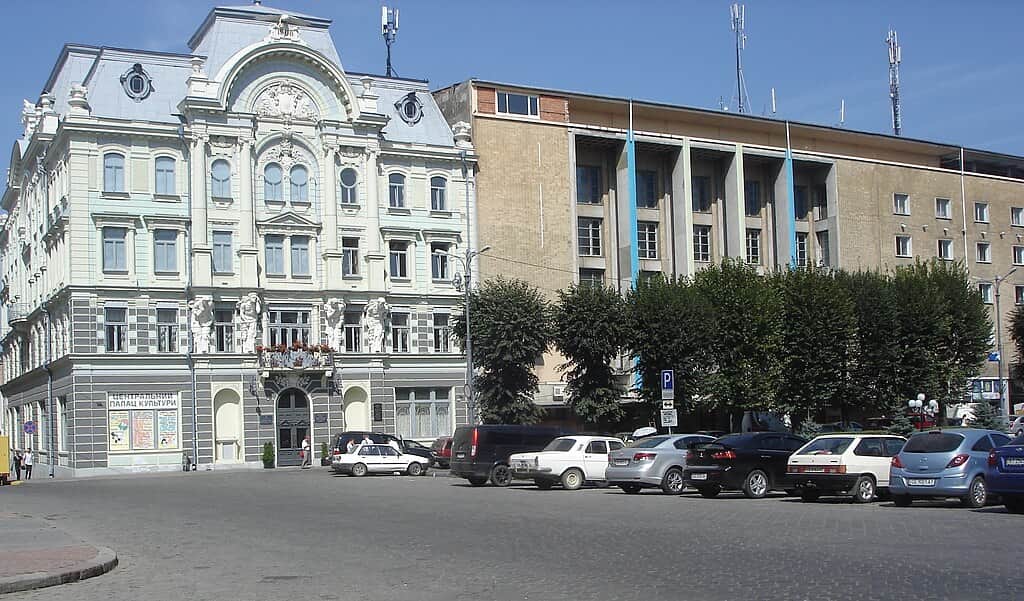
Does your research focus on Jews who opted for active support of Ukraine to counteract Russian aggression? For example, Ukrainian Jews are serving in the ranks of the Armed Forces of Ukraine (including my former research supervisor, Professor Maksym Gon) or supporting Ukraine in many other ways? What can you say about their sociological portrait?
To date, the post-Soviet wars — Russo-Ukrainian, Azeri-Armenian, and the conflict in Transnistria — are demanding a far higher degree of loyalty from Jewish communities than previously. The position of Jewish communities is as follows: Ukrainian Jews who have remained in Ukraine or are abroad are totally united in their support for their country. There is no difference in Israel between Ukrainian and Russian Jews who arrived 20–30 years ago; mostly all support Ukraine. There are very few who support Russian aggression. One may get the impression that there are a lot of these people because, at times, they succeed in filling the information space. In fact, less than five percent of people who immigrated to Israel from the ex-USSR support Russia. This situation differs radically from the one that existed before the full-scale war. In those days, most migrants did not support either side in the conflict. Today, it is evident that all sympathies are on the side of Ukraine.
As for Russia, the Jewish leaders and activists who have emigrated from there oppose the war. Those who have stayed avoid articulating their position clearly so that the authorities will not interfere in their activities. However, the regime is increasing its pressure on important Jewish figures and leaders, starting to demand that they make public declarations of loyalty. In Belarus, the Jewish topic has utterly disappeared from the daily agenda.
What is Israel's policy toward the descendants of Righteous Among the Nations?
In Israel, there have never been any restrictions toward them. I am talking not just about the Righteous but about their descendants. They obtain refugee status. As far as I know, there have been no changes to this policy.
Interviewed by Petro Dolhanov
This publication contains photographs from open sources.
Endnotes
1 lingua franca (It. "Frankish tongue") is the customary term for a language used in interethnic communication.
2 In the Ukrainian intellectual milieu, these contexts of comparing the Holocaust with the events taking place during the current war often spark condemnation. For example, the organizers of a recent roundtable held under the aegis of the Ukrainian Institute of National Memory wanted to call it "Is Babyn Yar Necessary after Bucha?" The inappropriateness of such comparisons triggered a wave of indignation. As a result, the organizers canceled the event but, for some reason, explained this decision by pointing to HAMAS's terrorist attacks on Israeli citizens.
Vladimir (Ze'ev) Khanin is an Israeli political scientist and professor at the Institute for Euro-Asian Jewish Studies, Herzliya, and Bar-Ilan University. He was born in Zaporizhia, completed his studies in the Department of History and English at Teachers' training University in Yaroslavl, got his Ph.D. from the USSR Academy of Sciences Institute for African Studies in Moscow, and was a postdoc at Oxford University. In 1992, he emigrated to Israel, where he taught at the Tel-Aviv University. In 2009-2022, he worked as Chief scientist (deputy director for research) at the Israeli Ministry of Aliya and Integration. His scholarly interests include the integration of emigrants from the post-Soviet countries and their integration into Israeli society. His recent publication is From Russia to Israel — And Back? Contemporary Transnational Russian Israeli Diaspora, vol. 49 in the series Europäisch-jüdische Studien–Beiträge.
Originally appeared in Ukrainian @Ukraina Moderna
This article was published as part of a project supported by the Canadian non-profit charitable organization Ukrainian Jewish Encounter.
Translated from the Ukrainian by Marta D. Olynyk.
NOTE: UJE does not necessarily endorse opinions expressed in articles and other materials published on its website and social media pages. Such materials are posted to promote discussion related to Ukrainian-Jewish interactions and relations. The website and social media pages will be places of information that reflect varied viewpoints.



















